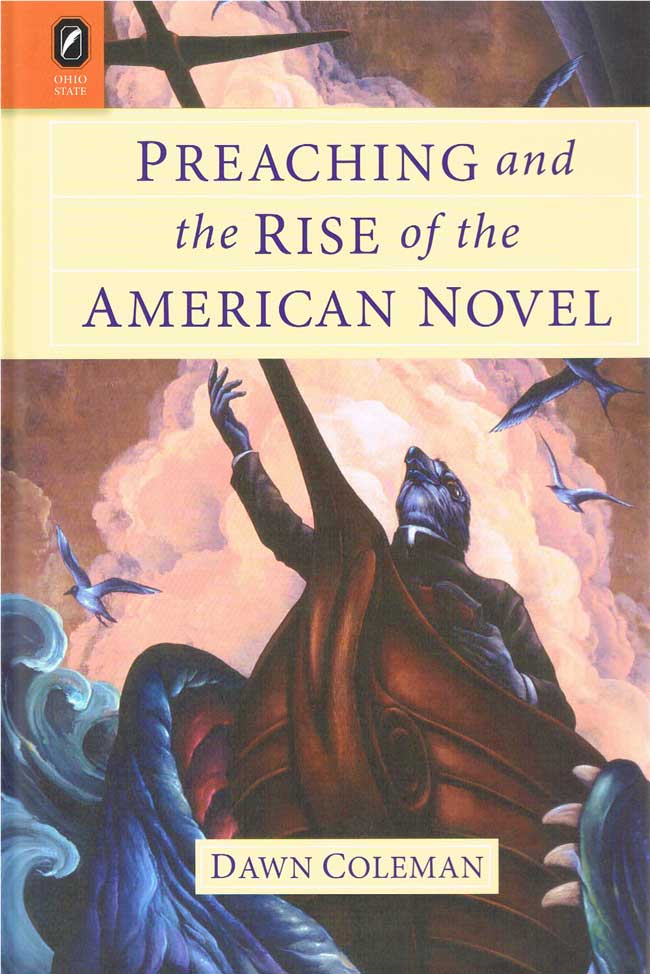Preaching and the Rise of the American NovelDawn ColemanLiterature, Religion, and Postsecular Studies |
 1/15/2013 Religion/ American $69.95 cloth 978-0-8142-1205-9
| |||
|
Explore More Center for the Study of the Novel Ellison, ed., A New History of the Sermon: The Nineteenth Century |
“Dawn Coleman addresses a historical blind spot in U.S. literary history. She points out that historians of U.S. culture have generally failed to take religion, religious literature, and the production and consumption of religious texts into serious consideration—applying the same level of theoretical and practical sophistication they bring to the study of secular literature. Coleman asserts that such study is itself serious enough to qualify as a cultural phenomenon requiring explanation. Preaching and the Rise of the American Novel is an ambitious, intriguing, and persuasive attempt to build a bridge spanning that longstanding divide.” —Ezra Greenspan, Edmund J. and Louise W. Kahn Chair in Humanities, Southern Methodist University “Dawn Coleman’s book is thoroughly researched, well written, and clearly argued. It will contribute to recent discussions about the dynamic relationship between religious expression and fiction by providing a literary application of David Hall’s valuable discussions of ‘lived religion’ to the nineteenth-century American novel.” —Sandra M. Gustafson, associate professor of English, University of Notre Dame Preaching and the Rise of the American Novel by Dawn Coleman recovers a crucial moment in the history of the intimate yet often contentious relationship between religion and literature. Coleman’s book highlights the intersection of two cultural trajectories in America around 1850, both often downplayed in literary histories: a boom in preaching, associated with the growth of evangelicalism and the country’s oratorical traditions, and the long struggle of the novel, still facing considerable disdain at mid-century, to achieve moral legitimacy and aesthetic autonomy. Before the Civil War, the preacher in the pulpit was the culture’s paradigmatic voice of moral authority, and novelists who wished to establish the moral value of their own storytelling needed to incorporate sermons. This book explores how antebellum ministers sought to preach effective, authoritative sermons and how novelists sought to claim a similar authority through canny representations of preachers, often veiled critiques of actual ministers, and sermonic voice, or a creative reworking of the sound of preaching. Such intense engagement with sermons shaped some of the period’s most interesting and important novels, including The Scarlet Letter, The Quaker City, Moby-Dick, Uncle Tom’s Cabin, and Clotel. In illuminating how novelists sought to displace traditional religious institutions, Preaching and the Rise of the American Novel reminds readers of the deep connections between Americans’ religious practices and their literature and speaks to how the processes of secularization are often less concerned with rejecting the elements of religion than reimagining them.
| |||



